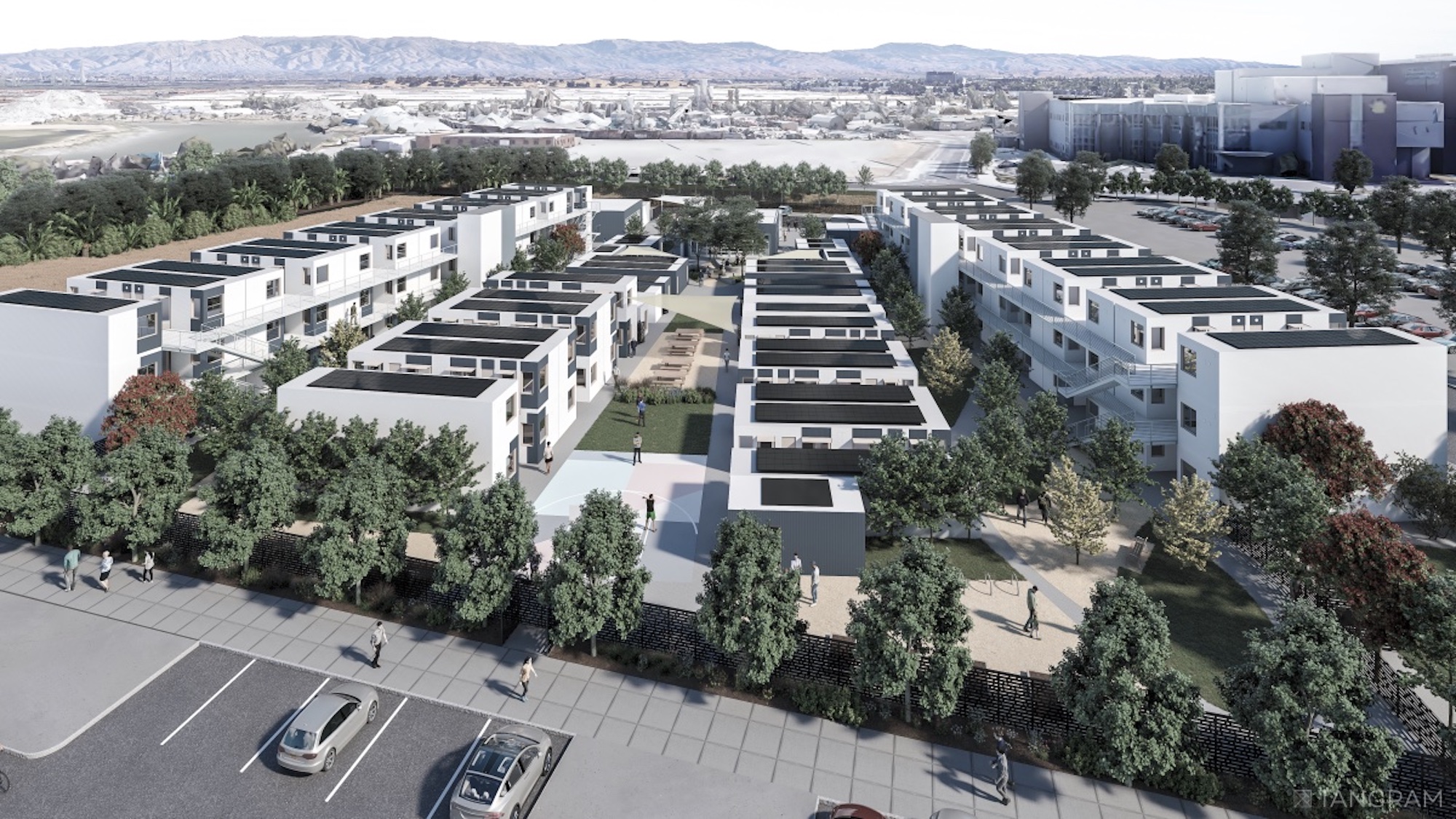A novel solution to homelessness will open soon in Redwood City, Calif. The San Mateo County Navigation Center is a compact residential campus that employs modular units to create individual sleeping units, most with private bathrooms. The 240 units of housing will be accompanied by shared services and community spaces. Instead of the congregate dorm-style shelters found in many U.S. cities, this approach gives each resident a private, lockable, conditioned sleeping space.
The project's architect, Charles F. Bloszies, FAIA, calls the design concept the "Step1” interim supportive housing system. “This idea is novel, but not experimental,” he says. “It stems from listening to unhoused people themselves and the social service providers who have devoted their careers to taking on one of society’s most intractable problems: homelessness.”
Metrics from studies by social service groups, including Menlo Park-based LifeMoves, operator of the facility, show this type of supportive setting works very well, with average resident stays of three to six months. The project has been developed and managed by the San Mateo County Project Development Unit (PDU) under a design-build contract employed for all construction undertaken by the county.
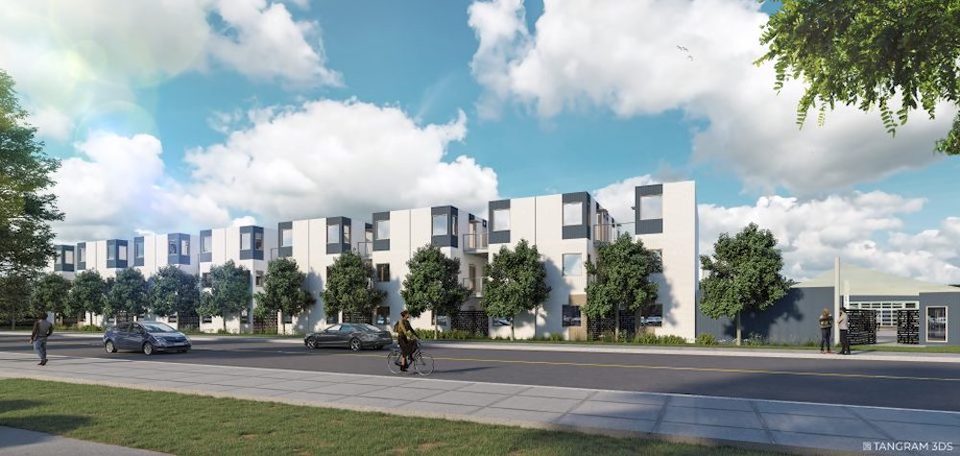
According to San Mateo County’s last count, over 1,500 people there are homeless. Redwood City determined that in early 2022 over 100 unhoused people lived in 25 encampments. About half of those unhoused people told city officials they became homeless during the pandemic.
The new Redwood City solution is hailed as “revolutionary” by County Executive Officer Michael Callagy, who said, “This will change the face of homelessness in our county. This is a tremendous opportunity to help our entire community by ensuring that every homeless individual who wants shelter can find it and is treated with dignity and respect. These are real people with real issues and these funds will change lives.
For a prior 100-unit project in Mountain View, Calif., also designed by the Office of Charles F. Bloszies, FAIA, Gov. Gavin Newsom said it “is exactly the kind of project that needs to be replicated, using modular prefabricated buildings that can be stood up at blazing fast speeds and at a fraction of the cost of normal housing.”
On the project team:
Owner and/or developer: San Mateo County Project Development Unit (PDU)
Design architect: the Office of Charles F. Bloszies FAIA
Architect of record: the Office of Charles F. Bloszies FAIA
MEP engineer: Meyers+ Engineers (design)
Structural engineer: the Office of Charles F. Bloszies FAIA
General contractor/construction manager: XL Construction
Modular subcontractor/vendor: Silver Creek Industries
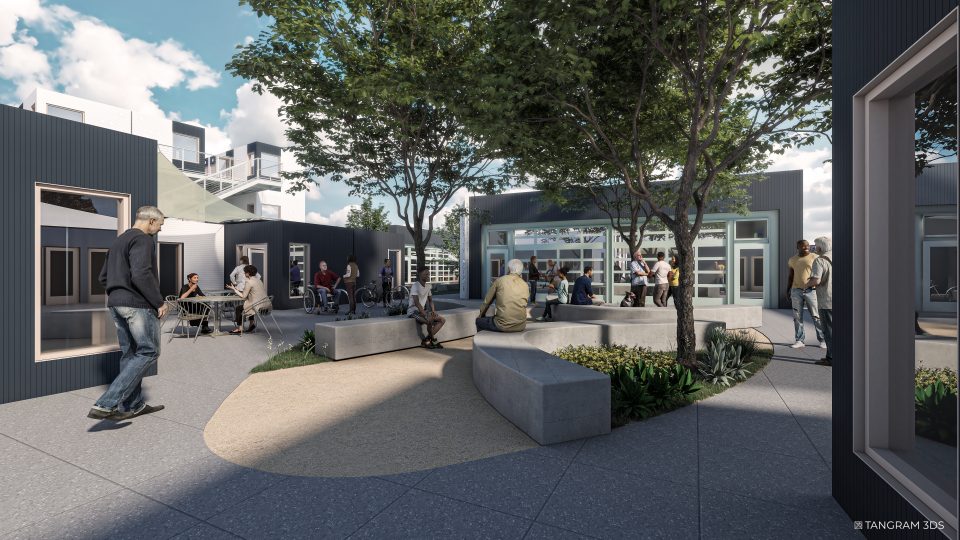
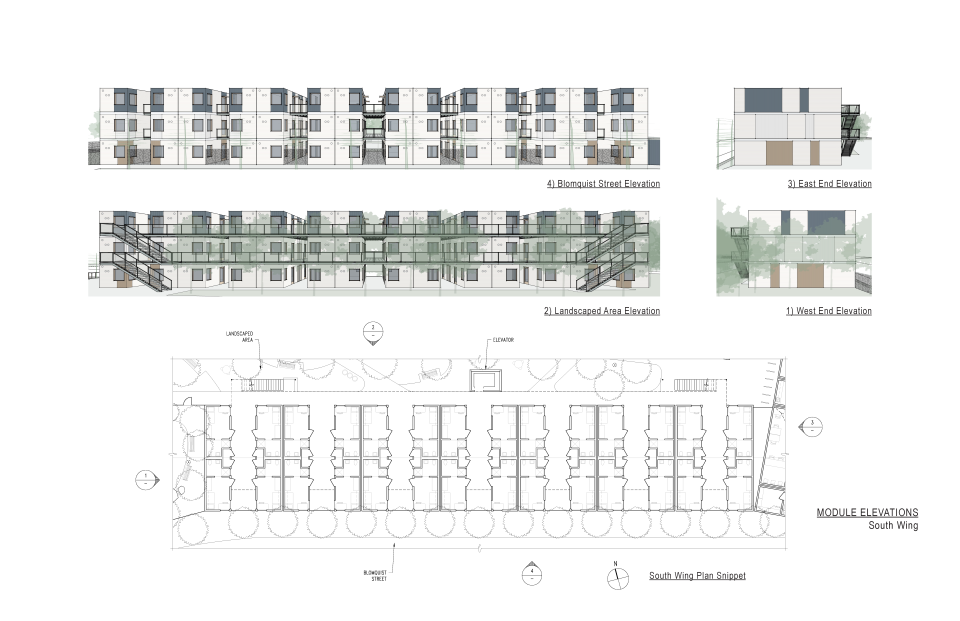
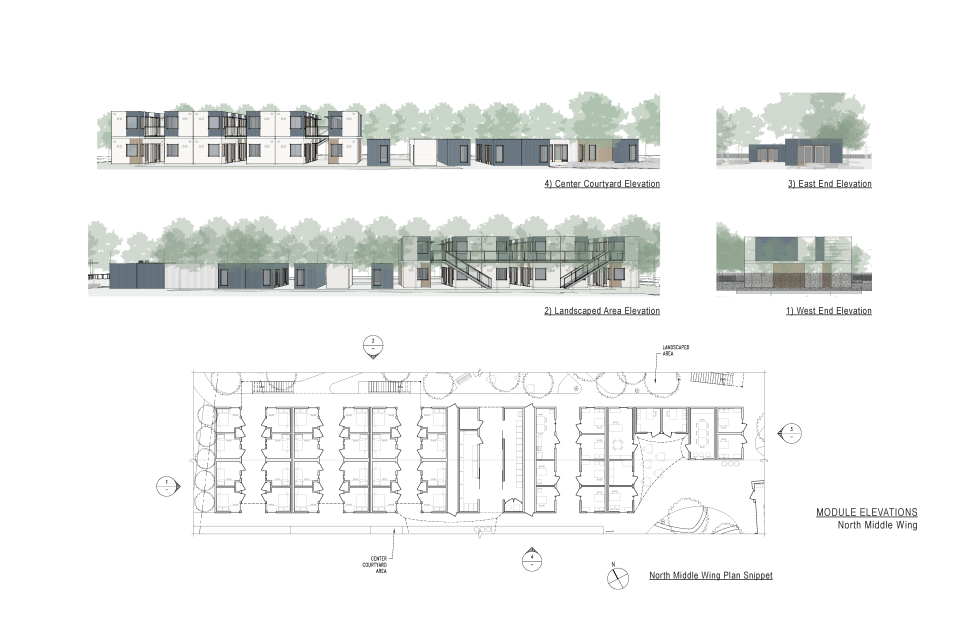
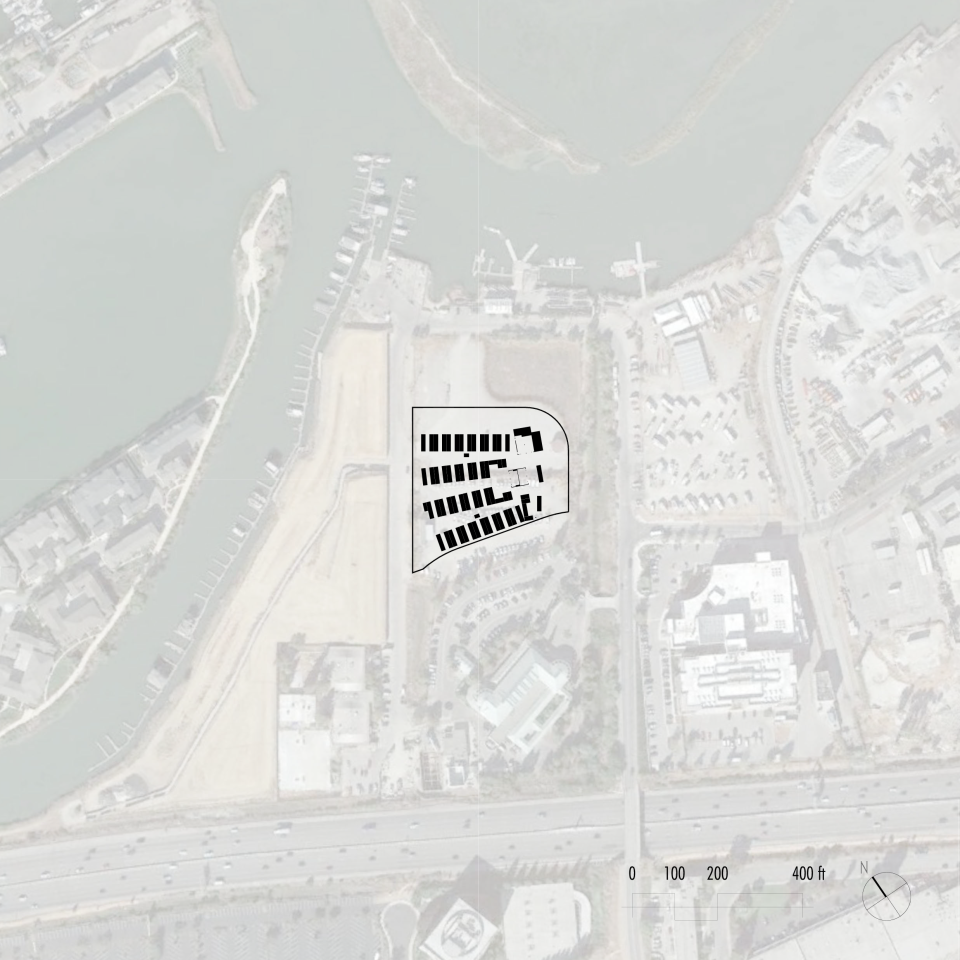
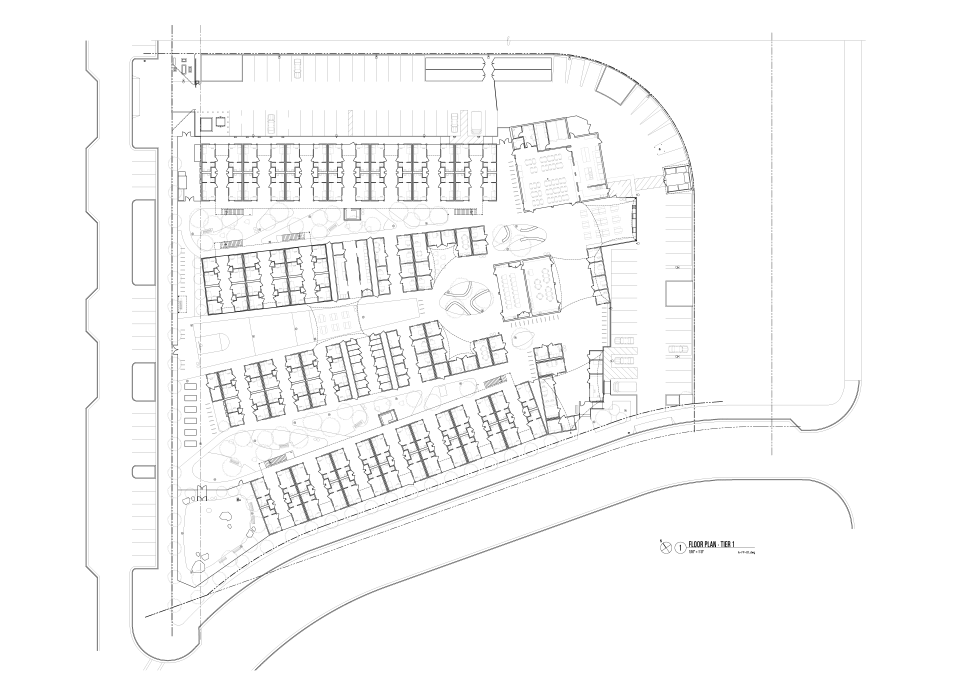
Related Stories
MFPRO+ News | Jun 3, 2024
Seattle mayor wants to scale back energy code to spur more housing construction
Seattle’s mayor recently proposed that the city scale back a scheduled revamping of its building energy code to help boost housing production. The proposal would halt an update to the city’s multifamily and commercial building energy code that is scheduled to take effect later this year.
Resiliency | Jun 3, 2024
Houston’s buyout program has prevented flood damage but many more homes at risk
Recent flooding in Houston has increased focus on a 30-year-old program to buy out some of the area’s most vulnerable homes. Storms dropped 23 inches of rain on parts of southeast Texas, leading to thousands of homes being flooded in low-lying neighborhoods around Houston.
MFPRO+ New Projects | May 29, 2024
Two San Francisco multifamily high rises install onsite water recycling systems
Two high-rise apartment buildings in San Francisco have installed onsite water recycling systems that will reuse a total of 3.9 million gallons of wastewater annually. The recycled water will be used for toilet flushing, cooling towers, and landscape irrigation to significantly reduce water usage in both buildings.
MFPRO+ News | May 28, 2024
ENERGY STAR NextGen Certification for New Homes and Apartments launched
The U.S. Environmental Protection Agency recently launched ENERGY STAR NextGen Certified Homes and Apartments, a voluntary certification program for new residential buildings. The program will increase national energy and emissions savings by accelerating the building industry’s adoption of advanced, energy-efficient technologies, according to an EPA news release.
MFPRO+ News | May 24, 2024
Austin, Texas, outlaws windowless bedrooms
Austin, Texas will no longer allow developers to build windowless bedrooms. For at least two decades, the city had permitted developers to build thousands of windowless bedrooms.
Mass Timber | May 22, 2024
3 mass timber architecture innovations
As mass timber construction evolves from the first decade of projects, we're finding an increasing variety of mass timber solutions. Here are three primary examples.
Mixed-Use | May 22, 2024
Multifamily properties above ground-floor grocers continue to see positive rental premiums
Optimizing land usage is becoming an even bigger priority for developers. In some city centers, many large grocery stores sprawl across valuable land.
MFPRO+ News | May 21, 2024
Massachusetts governor launches advocacy group to push for more housing
Massachusetts’ Gov. Maura Healey and Lt. Gov. Kim Driscoll have taken the unusual step of setting up a nonprofit to advocate for pro-housing efforts at the local level. One Commonwealth Inc., will work to provide political and financial support for local housing initiatives, a key pillar of the governor’s agenda.
MFPRO+ News | May 21, 2024
Baker Barrios Architects announces new leadership roles for multifamily, healthcare design
Baker Barrios Architects announced two new additions to its leadership: Chris Powers, RA, AIA, NCARB, EDAC, as Associate Principal and Director (Healthcare); and Mark Kluemper, AIA, NCARB, as Associate Principal and Technical Director (Multifamily).
MFPRO+ News | May 20, 2024
Florida condo market roiled by structural safety standards law
A Florida law enacted after the Surfside condo tower collapse is causing turmoil in the condominium market. The law, which requires buildings to meet certain structural safety standards, is forcing condo associations to assess hefty fees to make repairs on older properties. In some cases, the cost per unit runs into six figures.


